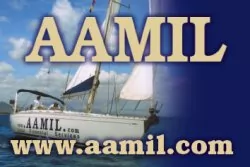1. Governing laws
The Civil Aviation Act 1974 together with the Civil Aviation Regulations 2007 govern all aspects of aircraft registration, mortgage or leasing in the Republic of Mauritius.
The Civil Aviation Department (CAD) is the authority overseeing all matters related to licensing, certification and regulation of aircraft, flight crew, aviation security and safety issues.
Any application for registration with the Mauritius International Aircraft Registry (MIAR) must be made through a Management Company licensed by the FSC, such as AAMIL Ltd, which will also assist in all dealings with the CAD.
2. Determining factors in selecting a place of registration
As the world-wide fleet of aircraft grows, so does the need to finance it. The aircraft is a mobile asset with a high capital cost and a strong residual value and as such has been particularly suitable for leasing.
The leasing of aircraft is a cross border business activity. As such, the lessor must not only evaluate the credit and operational risks he is to take on the airline operator but also the political risk of the country in which the aircraft is to be based and the legal risks in terms of the enforceability in that jurisdiction of the leasing and financing contracts that are to be entered into.
The place of registration of the aircraft is a critical factor in the evaluation of these risks. A financier will look for the following factors:
- A jurisdiction for registration, which provides for high standards of airworthiness and adequate supervision of the fleet subject to its authority;
- A registry, which evidences title to the aircraft, its engines and ancillary equipments and which facilitates the registration of all types of charges to which those equipments may be subject to;
- Any such registry to be administered efficiently, to be available for public inspection and to be reliable and up to date when it is so inspected; and
- Assurance that the laws of the jurisdiction of registration will not conflict with those governing the financing documents.
3. Why register aircraft in the Republic of Mauritius?
Some of the features attracting foreign operators to register with the MIAR are:
- Favourable tax environment and tax efficient structures;
- 100% accelerated depreciation rate in the first year of operation of an aircraft;
- Excellent asset security with flexible and innovative financing and leasing structures provided under the proposed Foreign Aviation Equipment Registration Legislation;
- Regulations ensuring international enforcement and preserving aircraft resale values and ease of re-exporting;
- Excellent corporate management environment and support elements including banks, lawyers and accountants; and
- Signatory to the Chicago ICAO convention, Geneva convention on International Recognition of Rights in Aircraft and the New York Convention on the Registration and Enforcement of Foreign Arbitration.
4. Registration process in Mauritius
The applicants must meet certain statutory qualifications laid down by the governing legislations, in particular:
- The aircraft shall be owned by a Mauritius citizen or a special purpose vehicle, e.g. a Global Business Licence Category 1 (GBL1) or Category 2 (GBL2) company incorporated in Mauritius;
- 2A preliminary application, for an approval in principle, shall be made through AAMIL Ltd to the Aviation Committee, which decides whether it is appropriate to entertain a full application. General background information shall be provided on the basis and main geographic area of operation, maintenance and crewing arrangements, name of operator of the aircraft and particulars of the aircraft. Once this authority in Mauritius is satisfied with the operating arrangements and the airworthiness of the aircraft, a formal application will be submitted;
- Alongside the formal application, related documents will need to be submitted, such as bill of sale of aircraft, maintenance and insurance arrangements, mortgage, etc.;
- Aircraft ranging from helicopter, private executive jets to large air passenger carrier types less than 25 years old are eligible for registration;
- White tailed aircraft, engines, spare parts whether attached or not to an airframe and flight simulators can be registered;
- Aircraft owned by a GBL1 or GBL2 company will normally not have the right to operate commercial flights from Mauritius or to land/stopover in Mauritius, except for repairs and maintenance; and
- The conditions of registration also provide for yearly inspection of the aircraft, to assess airworthiness. All costs relating to this annual inspection will have to be borne by the GBL1 or GBL2 company.
5. Further requirements
- The aircraft shall not concurrently be registered in another country, and shall not be subject to any undischarged mortgage;
- Submission of proof of ownership, chartering or leasing;
- Submission of certificate of insurance and title deed for aircraft bill of sale;
- Undertaking not to operate air transport services in Mauritius; and
- Yearly renewal of certificate of airworthiness.
|
Head Office |
European Office |
|
Suites 340-345 Barkly
Wharf |
8, Place du Bourg de
Four |
|
Tel. (230) 210 1000 |
Tel.: (41) (22) 818 61
00 |
The content of this article is intended to provide a general guide to the subject matter. Specialist advice should be sought about your specific circumstances.

